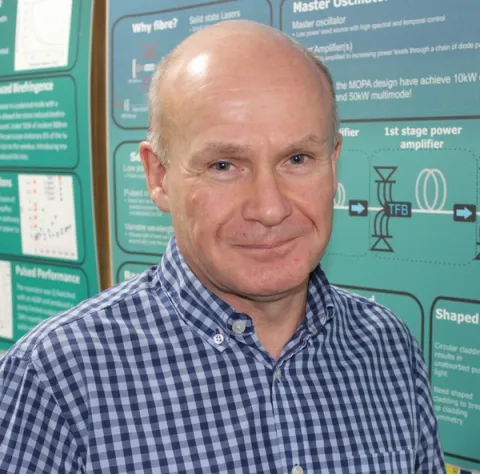About the project
This project will contribute to a major Ministry of Defence (MoD) research programme intended to develop generation after next technologies for applications in defence and security.
Fibre lasers have become the laser technology of choice for applications requiring high power, good beam quality and high efficiency. This has revolutionised industrial processing of materials and is one of the enabling technologies in emerging applications in defence and security. To date, much of the effort has focussed on ytterbium doped fibre lasers, but this technology is now approaching the fundamental limits.
Thulium (Tm) doped fibre lasers operate in the two-micron band and have numerous potential advantages from an applications perspective and for operation at high power levels. Thus, the goal of this project is to explore the power scaling limits of Tm-doped fibre laser and amplifiers.
Our approach will investigate radically different fibre and laser designs with the ambition of reaching performance levels that go beyond the current state-of-the-art to benefit a wide range of applications.
You will undertake this project and be part of a new MoD/EPSRC Energy Transfer Technology Skills and Training (S&T) Hub. The main aim of the Hub is to train the next generation of leaders in energy transfer technologies. The Hub is supported by MoD, Dstl, and UK companies working in defence and security.
You will be based at the Optoelectronics Research Centre (ORC), being part of a cohort of 12 PhD students across a number of UK institutions. The Skills and Training Hub will run online and face-to-face activities to facilitate cohort building and group learning exercises throughout the PhD programme. The project will involve close collaboration with our industrial partner, Leonardo UK Ltd, based in Edinburgh. Leonardo will contribute to PhD supervision by providing a placement opportunity.

